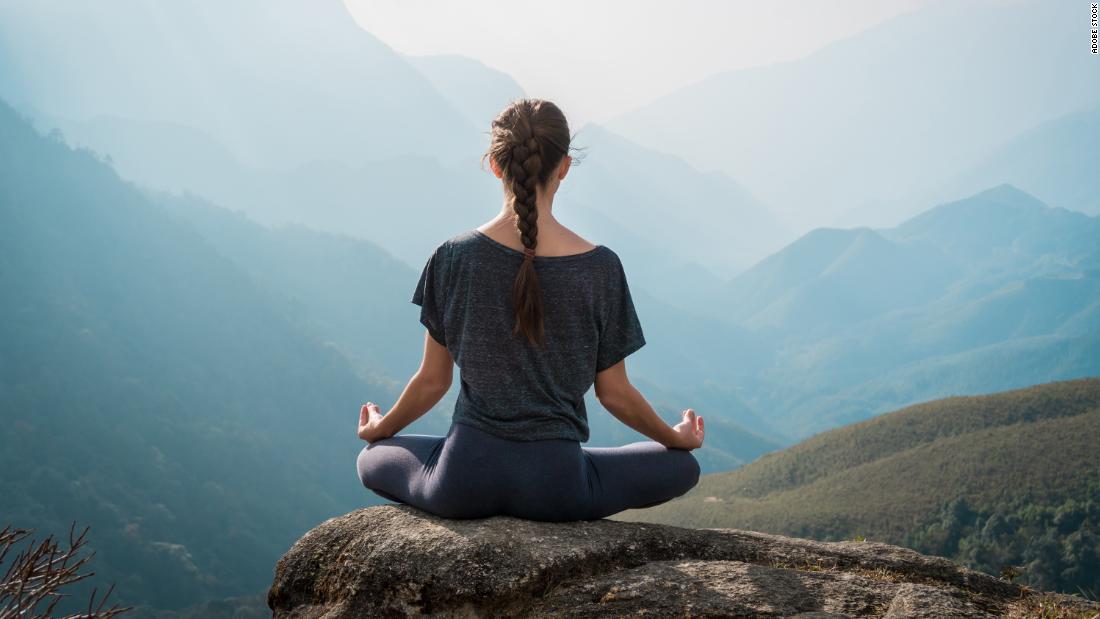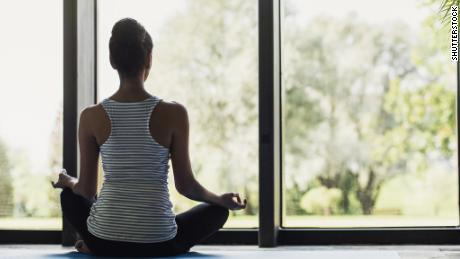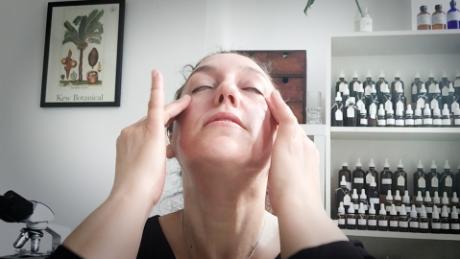
“You’re not only aware of your body; you’re aware of your surroundings and your world,” she added. “It forces you to pay attention to life (rather) than get caught up in your head with anxious thoughts, worries and ruminating about the future.”
“It helps you with memory and concentration, increases resiliency, helps you manage stress better (and) helps you have a positive impact on relationships,” Vermani said. “In relationships, if you’re busy in your mind, you’re reactive. And when you’re mindful and you’re grounded, you have a tendency to respond versus react, meaning to pause and reflect before letting things go out of your mouth that are sometimes hurtful, or negative or judgmental.”
Influencing stress and longevity
“Whenever we’re anxious or we’re racing in that rat race of a world, we’re rushing so much that we do short and shallow breaths,” Vermani said. “When you do that, your muscles tighten up, your brain tends to get foggy, overwhelmed; you might ruminate.”
Remaining research quandaries
Although there are some known benefits of meditation for mental and physical health, researchers are still looking into the best methods for objectively measuring how the practice affects the brain.
But pictures from MRIs and other imaging methods might not exactly depict the complex factors that would be involved in some of the conclusions other researchers have made about how meditation could change brain structure and function, the review authors said — potentially leading to “overly simplistic interpretations.”
Also, there have been some studies whose findings challenged the idea of meditation being able to help anyone regardless of their personal differences. “Meditation-related experiences that were serious or distressing enough to warrant additional treatment or medical attention have been reported in more than 20 published case reports or observational studies,” according to the Perspectives on Psychological Science review.
The differences between people who do or don’t benefit from meditation could just boil down to figuring out what type of meditation is best for one’s body and mental state, Vermani said.
“If you have bipolar, (bellows breath) can actually induce mania, so it’s a big deal. You don’t teach a pregnant woman bellows breath because it’s so vigorous, you can induce labor. So meditation does have consequences.”
Additionally, some people who turn to meditation have spent years avoiding or distracting themselves from distressing memories.
“When you’re alone, your thoughts go to the things that you have not dealt with,” Vermani said. “Military, 9/11 responders or cops that I work with — many times, they have so many horrible things that they have seen, they just kind of push through life and function and push things aside. But when they sit in silence and meditate or breathe, all those things come back to the surface because they haven’t addressed it.”
Practicing meditation in supervised settings with professionals who can educate about potential effects has been helpful for people with complicated emotional states, she added.
Getting started
You can also try an introductory class at a local meditation center, read a book, watch an online video, or practice alone. Whichever path you choose, see what resonates with you — find someone whose voice you like and whose words make sense, Waldinger said.
For beginners, starting out in a professionally led setting can be helpful for reorienting yourself after any hurdles that could lead to quickly giving up or feeling discouraged, Waldinger said.
“There are a lot of misconceptions about meditation,” he added. “One misconception is ‘If I’m doing it right, I’m not supposed to have thoughts.’ And that’s absolutely not the truth. The mind produces thoughts; that’s what it does. So, you won’t get rid of thoughts until you die.”
Instructors can teach you about the aspects of meditation that aren’t intuitive or obvious, such as that having thoughts or a distracted mind is OK, Waldinger said. “If you just set the intention to be present, then whatever happens is what you’re doing, including being distracted.”
Since meditation is about being present, it can be done anywhere, he added — but a quiet, uninterrupted area can be optimal for beginners still learning to focus on the present. You can start with just five minutes per day, then gradually increase.
“Try it every day for a week and see if you notice anything,” Waldinger said. “But even after one time, many people say, ‘Oh, that was helpful. I want to do that again.'”
If you notice that meditating makes you feel worse, talk with an experienced meditator about your experience or wait until you’re in a better emotional or mental state, Waldinger said.



